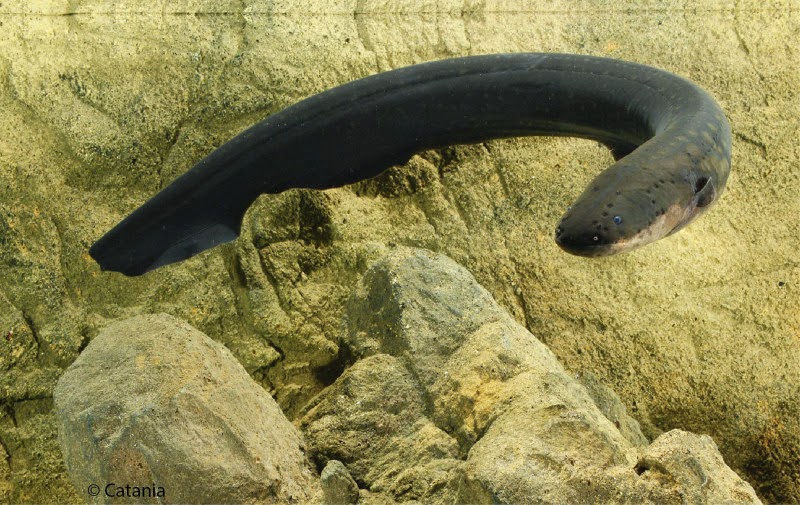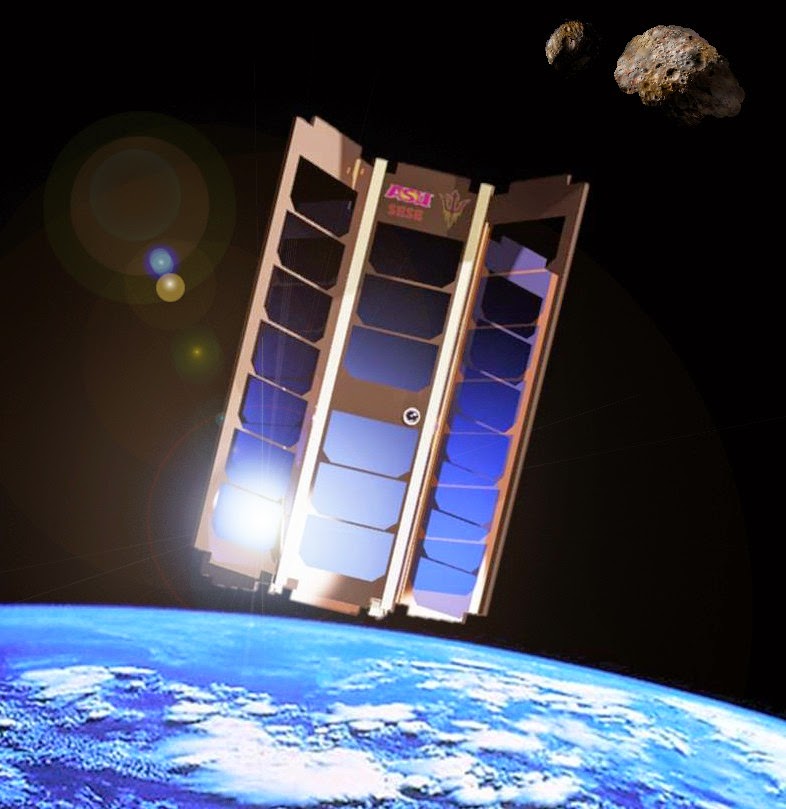 |
| Deep-sea biology. Credit: Image courtesy of Radboud University Nijmegen |
Deep-sea biology involves doing research below a depth of one thousand metres. 'The upper thousand metres and the seabed are familiar areas, since they are relatively easy to research', Dücker explains, 'but we are very much in the dark, literally and metaphorically, about the area in between. Deep-sea research is extremely expensive and complicated. Just one expedition day costs $30,000. However, the field biologists that do go down to that depth discover new species on every expedition. So the prospects for new knowledge are good.'
Harvesting manganese nodules from the deep sea
Such prospects make it essential to have a clear policy. Industries like deep-sea mining will do anything to obtain licences to exploit the area, while the consequences of mining remain underexplored. For example, they want to harvest manganese nodules from the seabed. These 'lumps' have taken millions of years to grow and contain traces of the valuable rare-earth metals used to produce electronic appliances like iPhones. Inactive hydrothermal vents -- cracks in the Earth's crust -- contain such metals too.
Policy on rare-earth metals
At present, 95% of rare-earth metals come from China. Buyers (mainly Western countries) are therefore looking for alternative sources. Many have set their sights on the deep sea. However, 'harvesting manganese nodules is anything but sustainable. They are not replaceable because nodule formation is the slowest geological process we know. In addition, harvesting is technically difficult and expensive, so for a long time it was thought to be impossible. Nevertheless, experts expect this harvesting to happen on a larger scale within the next ten years, so we quickly need to agree on ways of doing this properly.'
Double role for deep-sea biologists
Dücker hopes his thesis will make policymakers realise that they not only have to protect the deep sea but also the deep-sea biologists. 'There are few deep-sea biologists, so they often have a double role. Governments as well as companies and environmental protectionists ask them to do research and to gather information. They have a heavy responsibility to deal fairly with conflicting interests and to remain autonomous.'
Source: Radboud University Nijmegen



































